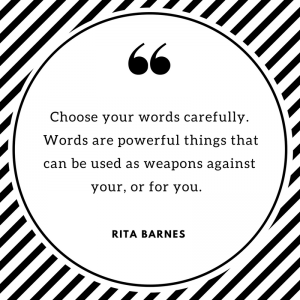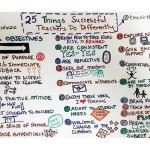Who knew the answer to all of our challenges was so simple that it could be written in bullets on the back of a napkin?
- Recruit top performing students from public schools.
- Label non-randomly selected samples of “lowest-performing” students and tout their growth.
- Ensure that your model is unappealing or unwelcoming to students who fit outside of bullet one.
- Claim success and win fawning praise from policymakers.
Yes, folks. That’s it. That’s the formula. And, although I’m sure supporters of this unicorn formula would welcome a debate over my cynicism, that is not the point of this post. Rather, I want to send a succinct message to those who are also in the trenches and predominantly tend to share my perspective.
Be careful how you defend yourselves and counter the attacks on your work.
Social and mainstream media has been littered with responses to the recent accolades received by some charter networks. In response, public education advocates and even many unbiased voices have pointed to the apples to oranges discrepancies in public to private/charter comparisons. However, the most passionate of those defenders have simply highlighted statistics that point to how the population served by private and charters do not represent those in public schools. Most striking of these statistics is the lack of ethnic diversity found in those schools recently celebrated, particularly the lack of African-American students and an over-representation of Asian Americans. From a research perspective, this argument is salient, particularly when one understands the contextual statistics around demographics. However, I am not so worried about that piece of the debate – the point is easily made. I’m far more concerned about the message this argument sends to those in the general public (and whose support we need), as well as the internal signal it sends that can easily be used as justification to absolve ourselves from facilitating dramatic results.
If we’re not careful with our responses, we can potentially damage our case externally with the public – as well as internally within our own workforce.
In the case of the public debate, it’s critical to remember policy positions are not built upon reason, they’re built upon emotion and a partisan hive mentality. It would be very easy for a list of statistics that seem, to a public education skeptic to say, “What did you expect? Look who we have?” to be leveraged against us. This can be done with a counter argument of, “If the outcomes are preordained, why would we invest in you and your system? And, what would we have to lose by blowing it up and trying something new?” I fully understand this is not what many of us are trying to communicate, we are simply pointing to the oversimplification of “results” being extrapolated into advocacy for a model that is not being truly and scientifically tested. However, what we’re saying, and how that message can be mangled, mutilated, and misunderstood, should be concerning to us. After all, has there ever been a time in the world of governance when nuance has been so overpowered by messaging and emotion? In the end, facts and meaning are less important than feeling.
Lastly, many of us spend countless hours working to strengthen the field from the inside out. Dedicated public educators are consistently trying to create a climate of equity and high expectations for all students and yes, sometimes they run into those within the ranks who subscribe to “These Kids Can’t Syndrome.” Every field has internal battles that shape its heart and soul, and if you visit any public school working with under-served populations, you will find a conscious effort to fight complacency and acceptance – that demographics determine the fate of entire communities. In my opinion, those who do this work, tirelessly advocating for those who can be written off by both insiders and outsiders alike, are navigating and influencing the defining “in fight” of our profession. We should be careful to not give the naysayers ammunition.
As we continue to do what we do and advocate for those students and communities who need us the most, let’s always remember how our words and messages can be used against us. Ir would be worth the effort to consistently qualify our statistical counters with data around the impact of masterful teaching – because it does make a difference. Although it is difficult to match the lofty numbers conjured by those who do not believe in our system, we can demonstrate that great teachers make a difference for all students, regardless of color, disability, or household income. This, in turn, sends a message to the public that we can be a worthy investment.
Just as importantly, it makes a strong statement to our fellow educators that we must always demonstrate a standard that doesn’t ask for an investment, rather, it demands one.









